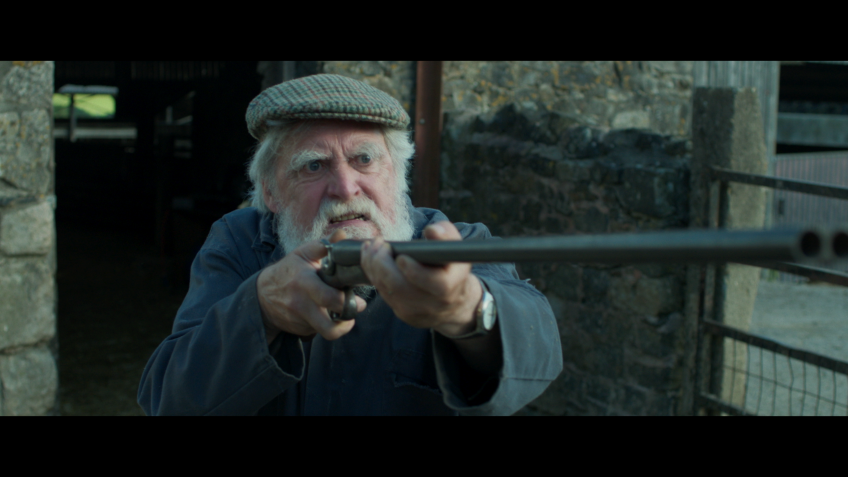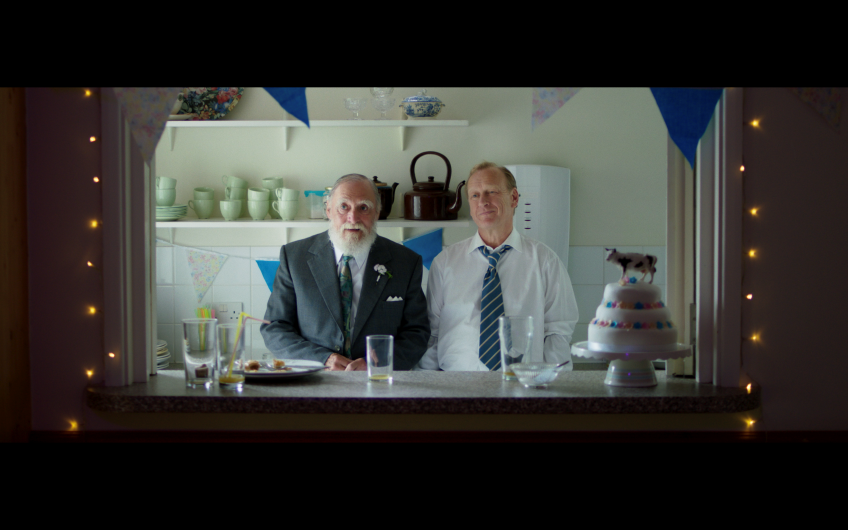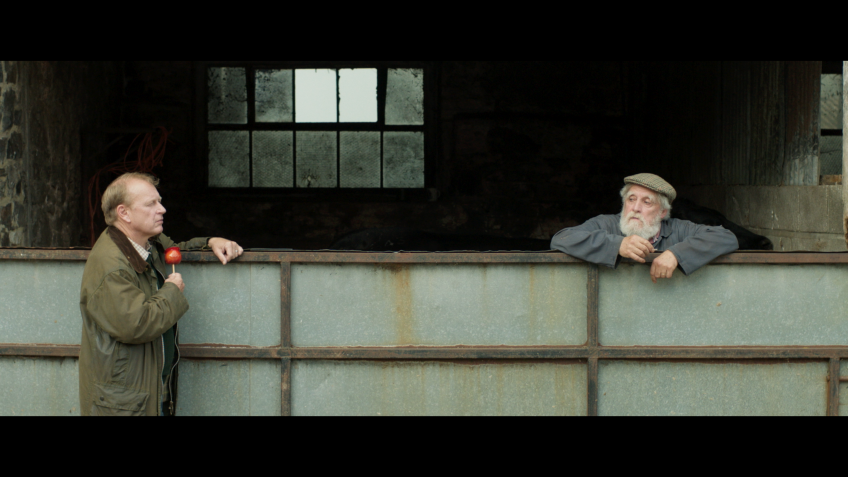Joyce Glasser reviews And Then Came the Nightjars (September 1, 2023) Cert 15, 81 mins.
There has not been a definitive film about the 2001 Foot and Mouth pandemic, although it was the backdrop of Full Monty writer Simon Beaufoy’s co-directorial debut in 1999, The Darkest Light, a prescient two years before the major epidemic. This might be because, devastating as the 2001 outbreak was to the UK economy and the lives of farmers, it was overshadowed by the destruction of the World Trade Center that year, the long term consequences of which changed the world’s political map, unleashed waves of migration and spawned dozens of films.
Playwright Bea Roberts set her 2014 play and sets her screenplay for And Then Came the Nightjars, in a Devon dairy farm devasted by the disease. There is a solid premise here as a farmer and his vet, separated by age, class and family situation, but united by shared experience and a love of the countryside, emerge from trauma to forge a life together. Curiously, though Roberts’ script reins in the potential while director Paul Robinson’s cannot sustain the drama – which peaks early.
Recent widower Michael (David Fielder) looks like he is approaching retirement age, but he also seems to be running his large farm by himself, lovingly feeding his prized cows, named after members of the Royal Family, scrubbing the barnyard and awaiting the birth of a calf. This is an ominous occasion because although male calves do not live long in any event, this one is destined to be slaughtered with his or her mother within weeks.
Concerned about a case of Foot and Mouth Disease at a neighbouring farm, when his veterinarian Jeff (Nigel Hastings) pays him an unannounced visit, Michael has him dip his shoes in disinfectant. He is suspicious of Jeff’s visit since Michael would never pay a vet to deliver a calf, something he can do himself. Several times he asks Jeff why he has come certain it is related to the disease. Over and again Jeff tells him he’ll be fine.

The herd is healthy and doing better than Jeff, who sips from a flask of alcohol. His marriage is on the rocks, he’s sleeping on the couch and he’s afraid of losing his eight-year-old daughter. He might also be fearing the consequences to his livelihood with so many cows being slaughtered.
Finally, with the expectant cow still turning in circles, Jeff leaves. Michael, who has a gruff, hardened, cynical demeaner softened only when telling Jeff that he still puts two teacups on the breakfast table, turns soulful. ‘You’re the only one I trust with my gals’, he warns Jeff, who will be as helpless as Michael when the time comes.
As Jeff drives off, we hear on the car radio that the government has extended the policy of contiguous cull. All animals within a three-mile radius of an infected farm are to be slaughtered and then burnt. Even without this radio announcement, the foreshadowing is so strong, there is no doubt what will happen.
Not only does Jeff continually reassure Michael that everything will be all right, while refusing to swear to it, but the two hear a Nightjar, although Michael, not Jeff, can identify the bird. He tells Jeff that the Nightjar, more often heard than seen, is an omen of death.
The first “act” as it were establishes the relationship between the two characters. The next act, the inevitable arrival of the culling squad, raises the dramatic level and provides some visceral, stunning visuals of a muddy, late winter farm turned into a slaughterhouse.
Michael is determined against all odds to protect his cows, threatening the faceless death squad in white protective gear with a barrage of cursing and his old, unloaded shot gun, but they are prepared and will win by sheer force and numbers. Jeff is there and buys Michael time but tries to convince him that he is powerless to stop the inevitable.

The film peaks early with this death scene, and never picks up again. Instead of shedding the stagey feel and showing how the two men come together to build a new business and life for themselves, we get homespun conversations on a hillside, none of which are memorable or even engaging.
Yet there is a lot to say about the culling policy that, in hindsight, was seen as heavy-handed, about farming policy in England and about how one recovers from traumatic loss. Even a two-hander featuring two men conversing can be made magnetic, dramatic and heartbreaking, as we saw in 2020’s Supernova, in which a successful pianist, willing to put his life on hold, has to learn to let go of his dying lover.
And speaking of the gay theme, so beautifully interpreted by Stanley Tucci and Colin Firth in Supernova, there is no hint of that here. If they are not lovers, just friends, we still need to see how their chalk and cheese relationship develops into such a close, long lasting one. Nor are there any signs of ageing in either character which makes it surprising when the two celebrate Jeff’s daughter’s wedding together.
If the point of adapting a two-hander play for the screen is to showcase great acting for a wider public, or to liberate the stage-bound action, then despite the solid production values and promising premise, And Then Came the Nightjars misses the point. In fairness to Robinson, Roberts’ underdeveloped script and uninspired dialogue does not give him much latitude.




